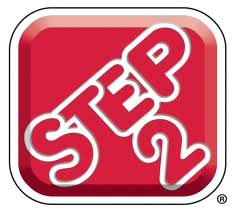What each of us can do
And so to the final chapter - an appeal to each person's sense of responsibility.
(In my edition of the book, the page numbering goes a bit wonky here. I have pages 1-160 in correct order then it jumps back to page145 and repeats all those pages again up to the end at page 176.)
Reimer starts with a suggestions on how to live:
"If there is ever to be a just world, (we must) begin to live as we would have to live in such a world.'
But he compares it with how most have chosen to live:
"Our modern idols are science and technology and their temples are the institutions which propagate their worship and profit from the proceeds. The promise of this modern cult - every man a king, with his private palace and his royal chariot - has captured the fancy of most of mankind....But this dream of universal royalty is a pipe-dream - only a few can win."
He suggests three things we can each do that will have a powerful effect:
1. Lower consumption - My family has a bit of a saying: "We live too well." It is repeated regularly at Christmas time when we observe how much we have, how much we consume. It is a gentle yet powerful reminder that we can use less than we do, and that for all we consume, someone else is going without.
2. Share - There is enough to go around. All we need to do is to make sure that there is an equitable distribution of the resources.
3. Conserve - If we conserve what we have, we don't need to produce more. Makes sense.
Reimer acknowledges that revolutions of the past, such as those in Russia and France, have only succeeded in replacing one central power with another. The solution rests in the importance of education, in people learning how to govern justly and how to organise an institution democratically.
To achieve a successful, free structure, people will need to make sacrifices.
"Each individual, then, must choose the kind and degree of sacrifice which he can sustain."
And so to the revolution.
"The risks of change are great but the risks of delay are greater."
And education is at the forefront, not reliant on schools or institutions, but real education of people learning to think and take responsibility for themselves.
Concluding comment
I'm glad I picked this book up. I'm a bit surprised that mother had such a political, left-wing type publication. I'm a bit surprised that I agreed with so much of what was said.
And what can I do?
Well, I am now much more focused on the equitable distribution of educational resources.
I have a clearer idea of what a school is, or of what a school is not.
And I have been provoked to think - even if I don't anticipate marching on the streets any day soon - at least this book has got me thinking.
Job well done.





































